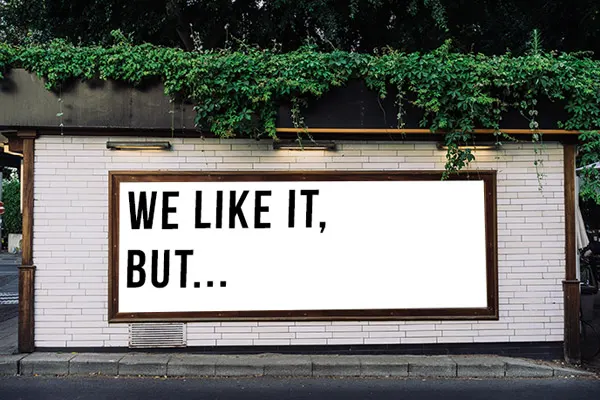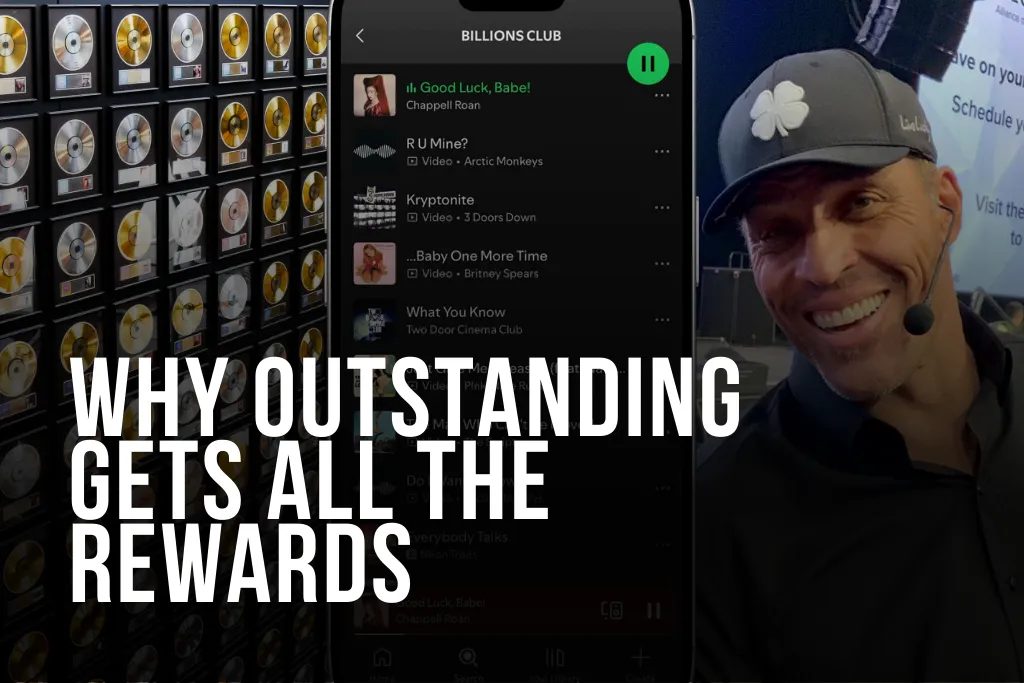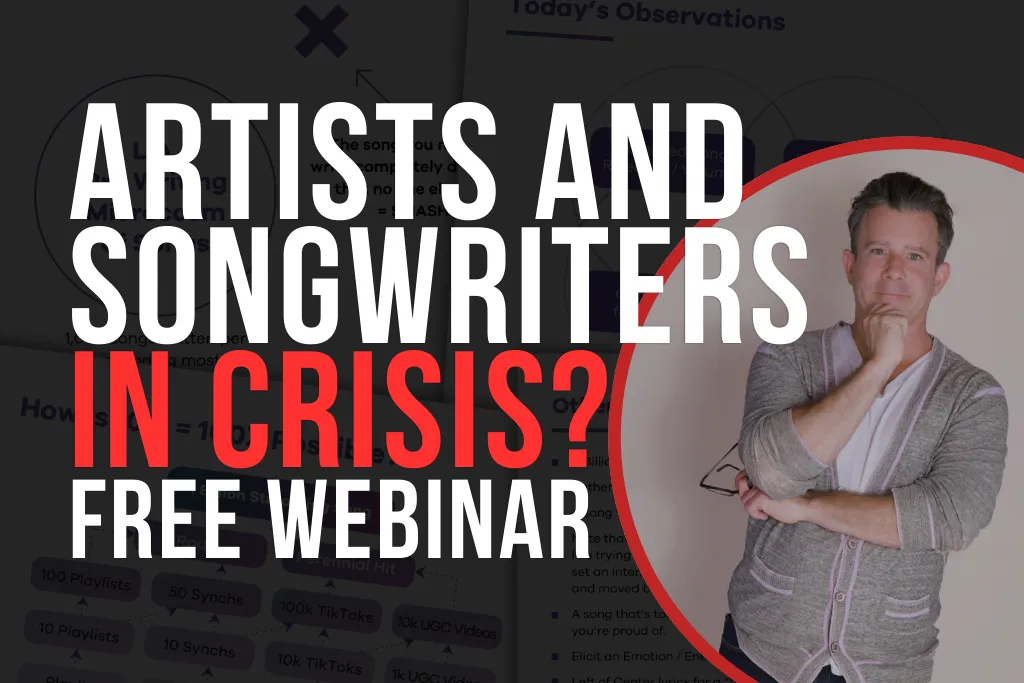Photo by Adam Jang on Unsplash (cropped, resized, and edited)
As a publisher, I really feel so fortunate and grateful to be working with some of the greatest writers on the planet, consistently delivering great pieces of work and amazing songs.
While usually most of the songs that come in (within the realm of our roster of professional songwriters writing for other artists) are songs we’re immediately setting out to pitch and secure placements, it would of course, be impossible for every song to be a hit.
And when this happens, especially with new writers, the easy thing to say…would be something lame like “Dope song!” The hard thing to say is … “Hey, this really isn’t good enough.” Not only that…but “And here’s why…” (At least in my opinion).
And I’m going to be totally honest, when I see those emails come in from one of my writers with a little icon denoting an attachment … it’s one of the most exciting times of the day and week. Literally, it’s almost like being a kid at Christmas. Because I know that, this attachment on this email could be – a million dollar song AND could change the writer’s life, my life, my employees’ lives, etc. Plus I’ve worked with this writer and we’ve built up to a certain momentum and level of quality…so I’m expecting something pretty great. So here goes … clicking on this attachment and …
Hmmm.

Shit. Well, that was a letdown. And that’s 100% OK because look – I know not every song is going to be a smash hit. On the other hand, I do have a certain “bar” that I want to be kept maintained by that writer, especially knowing what they’re capable of. And I’m always expecting that every year, every month should be what I call a “level up” from that writer or artist. In other words, the songs that the writer is writing a year from now … should be at a way higher quality than the songs coming in today or of course from even the previous year.
Anyway, getting back to that email of a new song that just came in, I’m formulating an honest reply, when I see that oh…another email comes in from the manager (and to keep this anonymous…this could be any manager over the last 25 years I’ve been in publishing :), or maybe it’s the co-writer’s publisher saying something like “Dope Song!” Or maybe there’s a little more effort put into it like “I LOVE IT! … It’s a Hit! Let’s get it cut!”
Well … double shit.
Don’t get upset managers and/or other publishers … but I know you really didn’t think that. Or maybe you did, but I don’t think so.

A Difference Between Publishers and Managers
Now, here’s a difference between publishers and managers. Unlike managers who have mostly “at will” agreements, the thing about being a publisher and my contract with a songwriter is … I can’t get fired. That’s a real luxury. Yes, of course, the deal can end and not be renewed, maybe an option might not get picked up … or maybe it just doesn’t work out. But no matter what, I can’t get fired for saying, “I didn’t think your song was up to your standard…” or even just being honest and saying, “I can’t pitch this one. It’s not at the bar we need, sorry.” “It’s not a FIRE song.” (More on what a “fire” song is here.)
Now, of course, the easy thing for me to do is just reply and say “Dope song!” … delete the email and the attachment entirely and move on to the next. You see, I’ve done my little part for the day and I’ve made my client feel special and encouraged, and falsely provided that really “safe space” for them to do continual mediocre creative work.

Fuck. That.
Doing that is just selling out a client and someone I respect, and I would never personally want to be that person on that receiving end looking for feedback, comments, critique, thoughts, support from a mentor or a peer or colleague and just getting a “Cool, man” email in response instead of maybe some real honesty that’s going to help me see the light and illuminate some blind spots.
The easy thing to do is just say “Great Song!” The hard thing to do is to say – even more so in person (and even with the more famous or established people), ”Look, this song is just not there. And here’s why.”
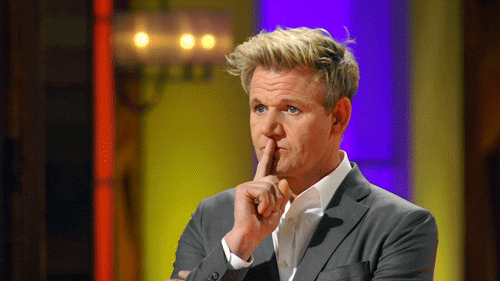
Objectivity and Feedback
One of the most important values a publisher can bring to the table is objectivism. I’ll give you a challenge. And I’ll give you $100 if you can do this. Take your right hand, and try to touch your right elbow. Did you give it a go? Right … it can’t be done. That’s what it’s like sometimes creatively with a work you create. It’s (I think) important to have someone you trust around to give you an objective reading of where the piece is at … and also … how it could be better.
Speaking of objectivity and feedback, a good friend of mine, Neil Strauss, has some things to say on the subject. There are three things you can do with feedback. Feedback is like a catcher’s mitt and as a creative person you’re out there always proverbially catching it in your glove. There are 3 things you can do: 1) you should always “try feedback on.” Like, is that a valid point and comment? Examine it, is there merit there? If so, then put the feedback to work. 2) You can “try on” the feedback and if it doesn’t fit / you don’t agree / doesn’t have merit … that’s fine and you can discard … but at least examine it. Lastly 3), if you keep getting the same feedback on the same point … and you keep discarding it … well, it could be likely that you’re just not seeing a blind spot in the song or even yourself. That’s something to be aware of as well.
A really good publisher, I think, can help provide that objectivity and help you see your blind spots. And if it’s a “B” level song that comes in … Hey, can we work on it and get to an “A-?” Or better yet a great song that comes in and tweaking it to the level where it’s a hit of the year!
And of course, sometimes … well the song was just what it is. And it’s that song in passing you had to write to get to the next song or session that results in a super hit.
But not being honest with writers…that’s where I get a bit upset with people because, by not being honest, they’re just selling everyone out (or at least selling short) their client and even themselves. Most people just don’t want to make it uncomfortable or would rather avoid potential conflict.
This is getting a little psychoanalytical … but it’s easier to run an “approval program” and be “liked” than run the risk of creating temporary friction.
My friend and sometimes mentor who I really got a lot of great insight from, Steve Lindsey, has a saying which goes like this: “Hate me now. Love me later.” In other words, you’ll think I’m a jerk because I said you weren’t good enough today. But in a few weeks, months, years, you’ll love me when you’re getting your songwriting awards because the bar was held high for you.
Side note: I was so proud btw to finally get my first BMI Awards this year being my own publisher as Brill Building, and I was excited to tell Steve at the ceremony. I had to laugh when he said: “That’s great buddy … I’m getting my 60th tonight.”

The Importance of Honest Feedback
But getting back to the post, I really just want to emphasize the importance of honest feedback, assuming you’re into that kind of thing (and you should be). Myself and my team believe hugely in the people we sign and work with … I think this is part of the plan that helps put people on the fast track. And then one day it all just clicks and they’re writing hit after hit.
But yeah, getting back to the atmosphere of “being nice” and supportive … sure that’s all important but we are NOT in the atmosphere or business climate of getting “participation awards.”
To put it through another analogy, you don’t think the best basketball coach out there just lets his players play a shit ball game … and then in the locker room exclaims, “Hey everyone … dope game!” Hell No! There’s no way!

That coach is kicking over water coolers, he’s lacing every other word with profanity, he’s yelling at the top of his lungs because he KNOWS what his team can do!!! On that note feel free to listen to the best / worst motivational band leader of all time, Buddy Rich.
And if that basketball coach wasn’t kicking over Gatorade coolers: a) he’s not passionate b) he doesn’t care about winning c) he’s selling out his teammates or d) just doesn’t care about winning (in a Charlie Sheen way) because he has a paying gig no matter what.
Stay up to date on must read, new articles, courses and special offers.
But that’s why I’m writing this post, as I’ll probably refer it from time to time, so I can provide some context … so I can explain where I’m coming from, especially as I’m taking a more candid approach to feedback so we can make faster progress. On that note … a couple of things.
One, if I work with you, I’m not holding you to your current standard of excellence … I’m holding you to your FUTURE (1-2 + years) standard of excellence.
Secondly, if you’re a manager and I work with you with a writer or artist … PLEASE don’t give fake encouragement to mediocrity. I really need your help on this. I’ll tell you why…
It reminds me of one manager I worked with over the past 10 years. It happened all the time where a song would come in … It would be a “meh” song, and then right after we’d get an email from the manager with the writer on copy saying “I LOVE IT” and guess what … that manager LOVED EVERY SONG!
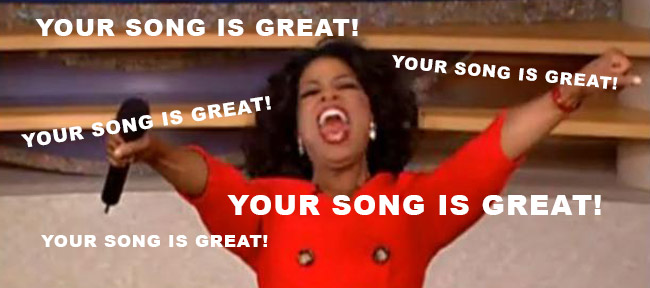
That just is no help and useless. Why? For the obvious reasons…for one, the writer starts thinking that everything they did was the shit and two, it gives the writer conflicting messages.
Because later in the day my email will come in (sometimes these are 300-500 words of thoughts on the song…like I really put my time into these). I’m not saying my ideas are all brilliant, but in the past, I have provided feedback that has turned good plus songs into hits.
Anyway, I’ll send out that email I spend 30 minutes on and maybe get back an email back from the writer, “Thanks but my manager (and my mom too!) loves it.”
Great. Now I have someone who thinks that turning in a B+ is what they have to do to make a living. And there’s nothing I hate more than B+’s.
Now sure, this blog post might sound highly egotistical. And it’s going to sound even more egotistical … because look, I’m not always right. I will be the first to admit that, but wait a second, I’m actually usually right (See, I told you).

The point I want to make here is … not being honest when honesty is called for and telling you your song isn’t cutting it or you’re taking a step backwards … is A COMPLETE DISSERVICE TO YOU. It sells you out. It sells me out. It sells my team out. And furthermore, it wastes other people’s time (i.e. the A&R’s) on the other end who might now get pitched the song because everyone is falsely hyped on it.
I have a renewed commitment to being honest and upfront with my clients. You’ll always get the real truth of what I’m thinking and more importantly why.
I’m 1000% committed to you, your growth and yes, of course, that equally turns into a commitment to myself and my own growth. And that all starts with honestly.
And I always love honesty back, how I can be better as well.
As a final note, one other mentor, Dan Sullivan at Strategic Coach has a beautiful quote:
“All Progress Starts by Telling the Truth.”
Let’s be honest (and have hits) together.
